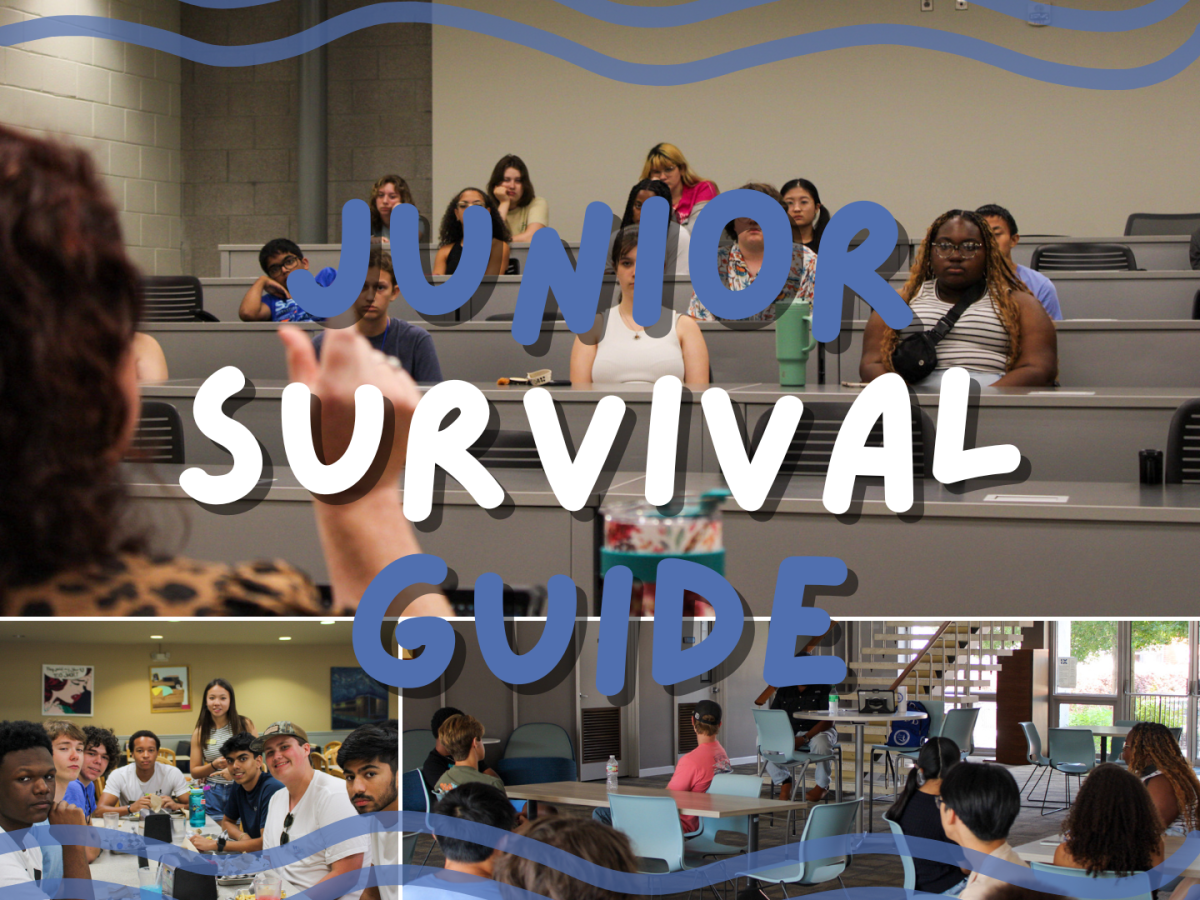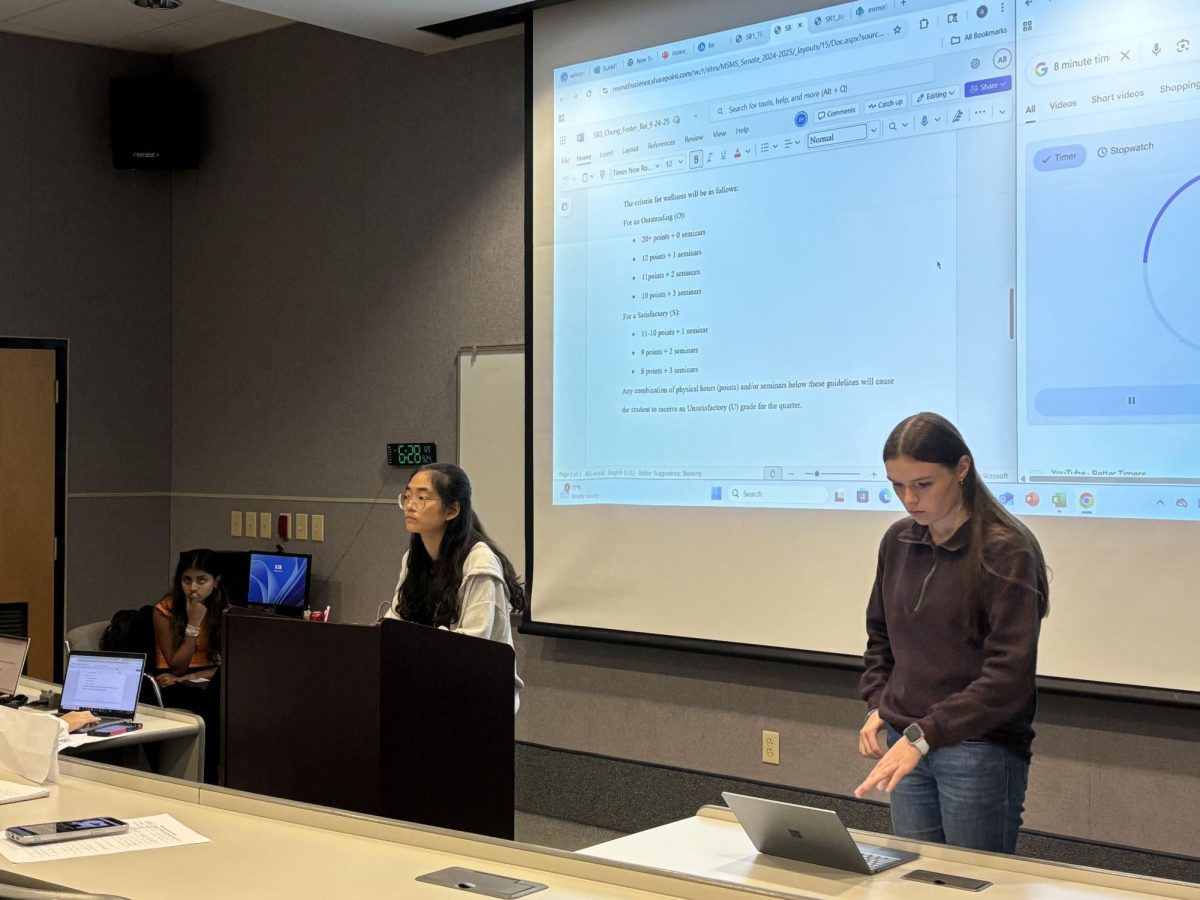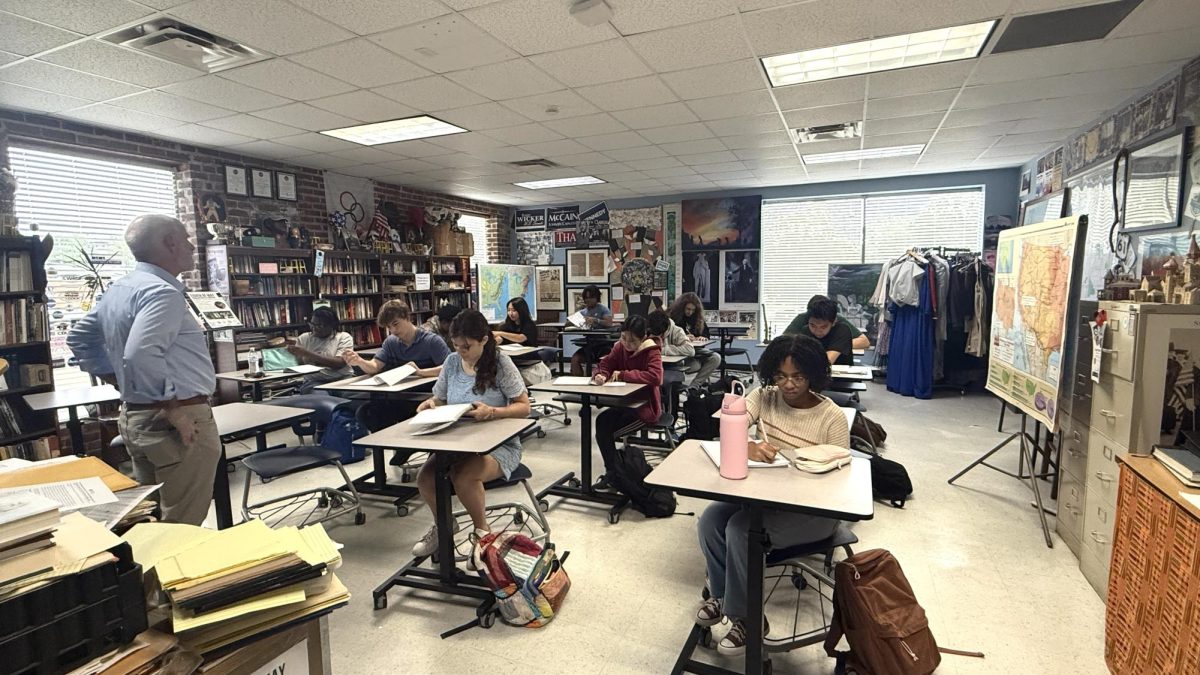Since its founding in 1987, the Mississippi School for Mathematics and Science has redefined education in Mississippi and has been the undisputed best public high school in the state. The school employs various unconventional methods to earn this reputation, so incoming juniors are understandably disoriented upon arrival and may initially struggle in the new environment.
MSMS already has provisions to smooth juniors’ transition, including the Emissary Program. This guide is not a replacement but serves as a publicly accessible collection of advice and general information for reference. Whether you’re a new admittee or a prospective student, reading this survival guide means you’re making a conscious decision to plan ahead and gain experience that will benefit your future.
Academics
MSMS is known for its rigorous academics. Most students are high achievers who ranked at the top of their former schools, so they’re eager to take the most challenging classes available. Don’t let your peers’ course choices and the school’s lofty reputation sway you. Make an informed decision, selecting classes you’re confident you can manage while maintaining a healthy work-life balance.
Most students do not enroll in AP courses, which students consistently described as some of their most difficult junior classes. Opting for easier alternatives frees up time to dedicate toward studying, hobbies or a social life.
This section covers the hardest course in a curriculum area based on a survey from the 2024-2025 academic year, my recommended track and some general advice for the subject. Note that classes and faculty have changed since the survey and the writing of this guide. Follow up with a reliable senior or school counselor for current, personalized advice.
English
English classes at MSMS typically assign extensive readings due by the following class period. These readings can vary in length, anywhere from five to 75 pages, and genre, from grammar guides to poems and recipe books. As with all coursework, avoid procrastination and don’t cram readings right before class. Schedule time to read and comprehend the material thoroughly. For older or complex texts, searching for summaries — SparkNotes is a reliable option — after reading helps with comprehension.
Some teachers post assignments and deadlines on a daily schedule rather than Canvas, so don’t rely solely on the Canvas dashboard to gauge your workload. TickTick and Todoist are great tools to help organize tasks in one place.
Quizzes may or may not be announced. Regardless, expect them to be omitted from the daily schedule. Pay close attention in class, taking notes if you’re willing, as teachers often drop tidbits of information about quizzes and dislike repeating themselves.
For students struggling with essays, English peer tutoring is available every night during tutorials in the Hooper Reading Room. Peer tutors can help correct grammar and structure, as well as work with students to develop a central theme in their writing. They have information about teachers’ preferences and pet peeves in writing and can work with students to account for those standards.
English faculty and students agree the hardest junior English class is University American Literature. Students are assigned readings due before every class period, which can take a few hours to complete on some nights. Pop quizzes, known as reading checks, are randomly given and can vary in difficulty. Be prepared for essays and quarterly presentations on readings and entire novels. American Literature final exams are notoriously difficult, with students having to memorize information on more than a hundred literary works covered throughout the year.
The most popular junior English class, and my recommendation, is University Composition, generally considered the easier of the two dual credit entry-level courses. The class primarily focuses on writing assignments, including essays, research papers and literary analyses. Be prepared for lengthy readings, Socratic seminars, a persuasive speech and reading quizzes. The final exams are an in-class essay citing sources to argue a position and a podcast project regarding Mississippi.
Mathematics
Math classes at MSMS offer few graded assignments compared to other subjects, but they’re easy to get lost in due to their pacing. While working ahead on your guided worksheet may seem enticing, force yourself to follow along with the teacher’s lecture by answering questions and being an active participant in the lesson.
Faculty members publish their schedules in the form of unit plans, which list lesson dates, practice problems and tests for the current unit. As with English, make a schedule on a third-party platform where you can see all your assignments at once.
When preparing for a test, complete the review your teacher gives you, as it will contain some variation of every single problem you’ll be tested on. If you’re still unsure after that point, work practice problems in the book repeatedly until you’re confident. Refer to or even rework your lesson notes to refresh your memory, if necessary. Khan Academy may be a helpful resource for students who prefer to practice online and receive immediate feedback. The Organic Chemistry Tutor is popular for explaining difficult math concepts.
Math tutoring is available every night during tutorials in the respective math teacher’s classroom. Peer tutors have the advantage of giving you individualized tutoring based on the class’s curriculum and your personal struggles. Most teachers also offer quiz corrections during tutorials that give you partial credit back if you correct a mistake on a test you previously made on a quiz.
Foundations for Higher Mathematics was the class the greatest number of students indicated was one of their hardest classes. Many students transition from schools that don’t prioritize math to a STEM school with math in its name. The remarkable difference in the amount of content and way that material is taught can make a new junior severely struggle. Foundations, now with trigonometry included, may contain a lot of new information to unpack for juniors with weak math foundations.
Students are placed into math courses based on a placement test administered during the application process. Think twice before you argue you should’ve been placed into a higher math class — the math faculty are very experienced and carefully analyze each student’s results to decide what track would suit their best interests.
Science
Science classes at MSMS are centered around three core subject areas: biology, chemistry and physics. These courses will generally be the most intensive at the school, and you will have to spend a lot of time working on assignments or studying to grasp the material.
Students can attend tutorials to review tests or work on problem sets and ask teachers directly if they have any questions. Teachers may also assign students to serve as peer tutors during tutorials.
Biology is almost entirely conceptual, so information retention is very important. Pay attention and take notes during class to absorb the material and remember the content long-term. For students preparing to take the AP Biology exam, it is highly recommended to read your textbook thoroughly, as it will serve as one of your main sources of information. Online instructors, including AP Bio Penguins, make easy-to-follow unit reviews and free response question walkthroughs. Search online for unit practice tests to prepare before tests.
Chemistry involves memorizing concepts and applying formulas. Pay careful attention and take notes during class to absorb the material. More than simply watching the teacher work out problems, do practice problems and problem sets on your own to check for understanding. Keep track of Mastering Chemistry homework and take them seriously, avoiding cheating and using as few hints as possible. Don’t wait until the night before to study for a test — allot yourself a certain time per day where you study the unit or read the textbook. Some students find Dynamic Study Modules on Pearson to be helpful when reviewing. Many AP Chemistry students also use prep books, including “5 Steps to a 5” and “Princeton Review.”
Most students opt to take physics in their senior year, but those looking to pursue a related field such as engineering may choose to take it earlier. Physics is a combination of conceptual learning and practicing calculations. Read through the textbook thoroughly, studying the definitions of major content within each unit. Take notes and keep track of big concepts. Look at practice problems the teacher works on the board, because they might reappear on the tests. Many questions rely heavily on memorization of formulas. Students also may be required to give short lab presentations with a group, so organize roles and practice the presentation beforehand. Other physics students have to write full-on lab reports, which require advanced preparation.
The largest number of juniors indicated AP Biology was the hardest science course. I stress junior here because, although most students agree AP Physics C is the hardest science track, it requires calculus corequisites that few students meet during their first year. AP Biology typically assigns five to 10 Canvas assignments every three weeks, most of which are Process Oriented Guided Inquiry Learning activities. Complete these assignments at your earliest convenience — the POGILs can be lengthy, but these assignments usually don’t require extensive thought or preparation. AP Biology students have labs on Tuesdays, where they perform the lab based on written instructions and fill out a set of questions afterward. The course also administers tests as needed, sometimes with very little prior notice — the class doesn’t follow a schedule, so listen for test dates and always be prepared. At MSMS, self-studying for the AP Biology exam is strongly recommended. Space out your studying so you don’t try to cram right before the exam.
Especially for the sciences, there are some very difficult courses you should take time to consider before committing to. Using the course catalog, research and map out a rough idea of what classes you want to take that better prepare you for your intended college major. Find out what prerequisites or corequisites these courses need so you can tweak your schedule to ensure the classes you take at MSMS best prepare you for college.
Social Sciences
Social science is generally the least intensive of the major curriculum areas. However, most courses make up for this by requiring that students complete a research project on top of their coursework. Tests in social science classes focus heavily on memorization of key concepts, terms and important figures.
Make sure to listen carefully when taking notes, because some tests include information not displayed on the board but rather spoken out loud. Your tests will cover everything on the notes, so don’t skip out on any information. Compile this information into flashcards, either physical or on an online platform such as Quizlet, then review prior to the test.
Tests also include written essays, the prompts of which are provided beforehand. When you’re planning out what to write on the exam, make sure you answer the entire question. Be specific to demonstrate understanding of the material, because social science teachers are precise and will catch if you’re being intentionally vague.
Tales from the Crypt is widely considered the most difficult history track. The one-year course requires heavy memorization in preparation for tests, which may be more frequent than in other classes. Students also have to participate in its performance project, which will eat into schedules because of the multiple practices, auditions and performances it has throughout the year. The project is award-winning and nationally celebrated, so if you think you have a shot at becoming a performer, Tales may be something you’re interested in.
If you don’t think you have the knack to be a performer or you’d like to free up a block in the year for another class, my recommendation is University U.S. History II. Depending on the instructor, students may even have the option to bring a notecard to exams. The frequency of exams also varies, with some students having as few as two over the entire course. Homework may consist of reading responses, analyses of historical texts. Be prepared to hold in-class discussions over the responses the following day, where participation may be graded. University U.S. History II students must complete a National History Day project for their final exam, which you will have ample time to do.
Extracurriculars
MSMS has many extracurricular options to choose from, and many students every year create their own clubs or establish sports teams. If you’re passionate about a club or sport, feel free to carry it over to MSMS. The Vision compiled a list of introductions from extracurricular leaders, offering an overview of their clubs and commitment levels for juniors to plan their schedules accordingly.
It’d be beneficial to join any extracurriculars you’d be potentially interested in at the beginning of junior year. You’ll have the most time then to decide which extracurriculars you’re passionate about and willing to commit to.
Residential Life
MSMS is one of the few boarding schools in the state and will likely be the first boarding experience many students have. Not only does boarding imply students reside on campus, but they also have access to a host of facilities and resources provided by the Mississippi University for Women. Students must reside on campus during weekdays but are given the option to return home on the weekends.
The boarding experience at this age is truly an unrivaled opportunity for growth, but it’ll only give out as much as you’re willing to put into it. Living away from your family prepares you for the inevitable challenge of life by yourself. You learn to be responsible for your future and make your own decisions, such as waking up, optimizing your study schedule, going on a diet or finally hitting the gym — everything short of cooking for yourself. However, you will also be tempted to procrastinate or make unwise decisions without parental guidance, so lean on your own intuition and trust your gut.
Packing List
Bring some type of fan — desk, box, oscillating, tower — because residence halls can become very hot in the summer months, especially when the air conditioning malfunctions. On that same note, consider bringing an extra blanket during the cooler months when the heating also inevitably malfunctions. Having an extra blanket to throw over yourself when forced downstairs during a tornado siren or outside during a fire alarm is also very helpful, especially when they occur late into the night.
If you’re willing to provide the additional fee, refrigerators are also highly recommended. Along with homemade meals to eat when you’re tired of cafeteria food, store some healthy snacks in your room to curb your cravings in the middle of a study session. A Keurig can be used to brew hot water for coffee, tea or ramen, so bring your own for quick access. The one in every floor’s lobby also may be dirty or have an off taste — you never know what other people are using it for.
Please do your part to keep your room clean and organized! Your roommate, guests and sanity will thank you. Buy storage organizers you can slide under your bed for an inconspicuous place to keep your clothes and other essentials. To make your bathroom appear spotless, keep your smaller toiletries in a portable shower caddy, then take it to the bathroom whenever you’re taking a shower. Disinfecting wipes are a godsend for quickly cleaning any type of mess, so keep a case in the room at all times.
If you’re suffering with a headache from your day-to-day activities, the bright white fluorescent lights mounted above the beds certainly won’t help. Ambient lighting, such as LEDs, allows you to customize your living environment to appear more homey and less like a hospital. Bring a table lamp so you can do work in bed at night without bothering your roommate. Of course, to connect all of these appliances, you need a power strip with a considerably long cord.
Bring other items to personalize your space — it’ll be your home for the next year, after all. A rug, comfortable chair and decorations are all useful to create an attractive and relaxing space, which has been shown to be conducive to productivity.
Cohabitation
Generally, students live in a room with one other student. Two rooms make a suite, which shares one bathroom between four individuals. Rooming assignments should be taken seriously, as students only have two chances to submit a room change per year, barring extreme circumstances. While rooming with a best friend may sound enjoyable, consider whether you want to spend the next two years constantly surrounded by this person, even on days when one of you is short-tempered.
As a firm advocate of stepping outside your comfort zone, I strongly advise that rooming is not a situation in which to take those chances. When you’re in the thick of a crucial exam season and can’t study in your room because tensions with your roommate have made the space unbearable, those late-night laughs from months before will suddenly seem far less worthwhile than you once imagined. By all means, surround yourself with people who think differently from you, but make sure the roommate you return to at night meshes well with you and respects the space you need, even if you’re not the closest of friends.
Being a roommate carries different expectations and responsibilities than being a friend. At the end of the day, a roommate is someone with whom you occupy a space — not an academic crutch, entertainer or caretaker. No matter your relationship with your roommate, each party should be expected to fulfill their individual responsibilities as a member of the suite and a resident of the MSMS community.
Campus
The people and community are undeniably the best aspects of living on campus. Your close friends, seniors and peer tutors may be living just a few doors down from your room, easily accessible no matter the occasion. The MSMS community is especially warm and inviting, so don’t hesitate to knock on a random door and make a new friend. Be kind and always offer help to your friends so you receive it in return — it makes the year go by a lot easier.
All of the main buildings on campus are within a 10-minute walking distance. Hooper Academic Building, Hogarth Dining Hall, Stark Recreation Center — travel is very convenient and painless, especially if you know the shortcuts. Clubs constantly host meetings and events, so there’s always something interesting to do. Even if you’re not keen on participating in extracurriculars, the campus has a charming atmosphere with lush greenery that makes for relaxing nighttime strolls!
Students also appreciate having a variety of third places on campus, notably Fant Memorial Library. You can reserve study rooms for a maximum of two hours per day for studying, hanging out or birthday parties. Don’t forget to stop by the Starbucks inside the library’s 24-hour section for a snack or beverage.
Conclusion
If my high school experience were encapsulated in a movie, MSMS would be 90% of the plot — but not a clichéd, feel-good coming-of-age story. I can only provide such specific advice because I’ve experienced firsthand how easy it is to lose precious time, sleep and opportunities when you don’t have the right guidance upfront. Nor are you immune to the challenges this school will inevitably impose, even if you read this guide, which is by no means comprehensive.
Keep this in mind: What do you hope to gain from MSMS? Ask any senior, and I can almost guarantee that in their long-winded reflections, “diploma” won’t even cross their mind. May the same be true for you.
Editor’s Note: This article was edited after publication to clarify information about the mathematics department’s assignments.








